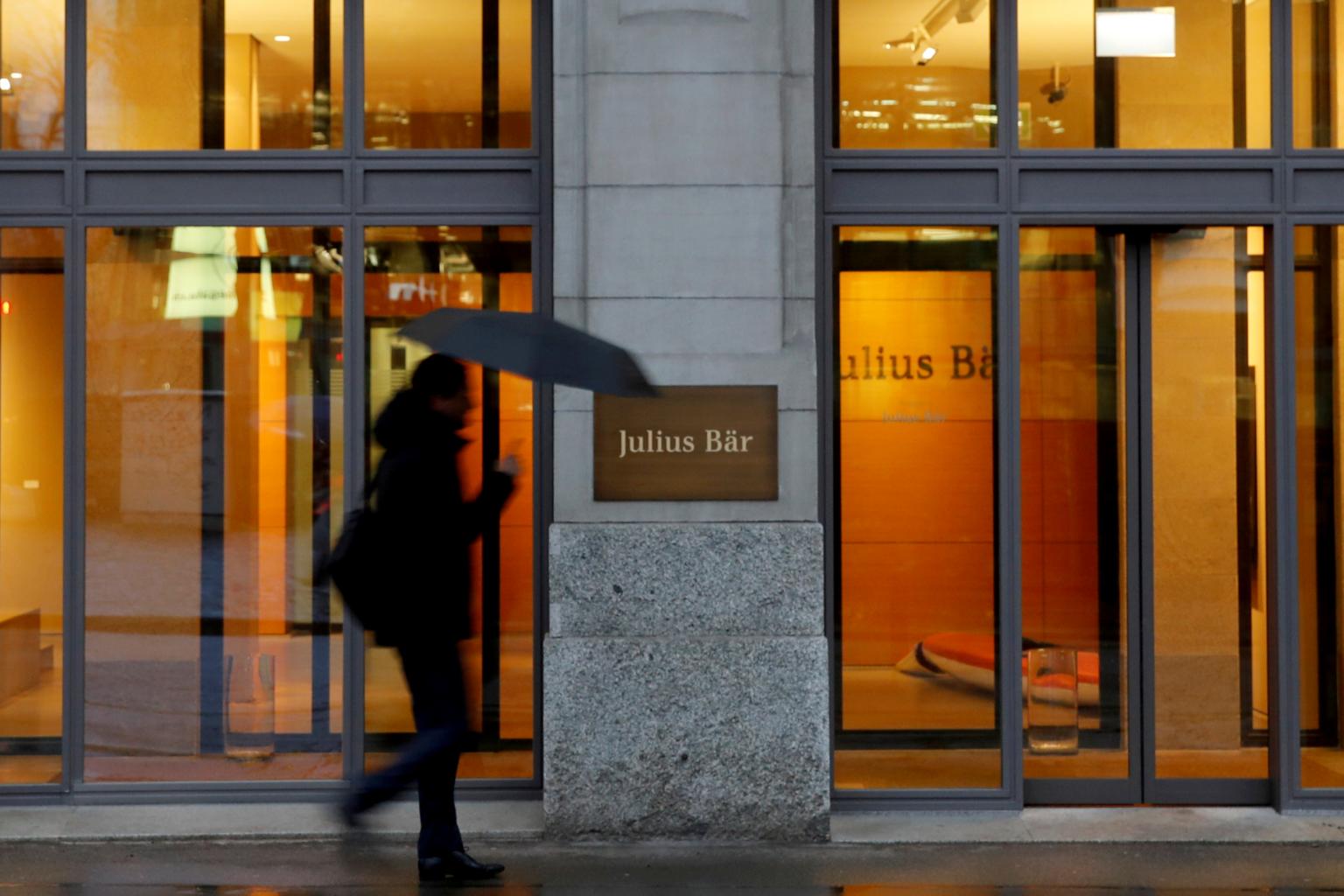Football: Swiss bank Julius Baer to pay US$80 million to end Fifa laundering probe
Sign up now: Get the biggest sports news in your inbox

The bank said in November it had set aside US$79.7 million to resolve the case.
PHOTO: REUTERS
Follow topic:
NEW YORK (BLOOMBERG) - Julius Baer Group Ltd will pay almost US$80 million (S$106 million) to resolve a US probe of its role in the payment of tens of millions of dollars in bribes to leaders of Fifa, the governing body for world football.
The United States charged the Swiss private bank with a money-laundering conspiracy and will drop the case in three years as part of a deferred-prosecution agreement, if the bank meets certain conditions. Federal prosecutors and the bank's general counsel appeared in a video conference on Thursday (May 27) before US District Judge Pamela Chen in Brooklyn, New York.
Julius Baer will pay a fine of US$43.3 million and forfeit US$36.4 million. The bank said in November it had set aside US$79.7 million to resolve the case. It has cooperated with US authorities since 2015 in a corruption investigation involving officials and affiliates of Fifa and associated sports media and marketing firms.
The bank "agreed with sports marketing executives and football officials to launder at least US$36,368,400 in bribe payments through the United States in furtherance of a scheme in which sports marketing companies bribed football officials in exchange for broadcasting rights to football matches," according to a statement of facts that Julius Baer admitted.
The bank declined to comment on the agreement.
Massive crackdown
The pact is part of a massive US crackdown on corruption in Fifa that led to at least 26 guilty pleas as well as deferred- or non-prosecution agreements involving several sports marketing and athletic apparel corporations.
A former Julius Baer banker, Jorge Arzuaga, was sentenced in November to three years of probation for facilitating the payment of bribes to the presidents of the Argentine Football Federation and the South American Football Confederation. He cooperated with investigators.
While the bank contacted prosecutors shortly after the US made its first Fifa arrests in May 2015, it failed to "come forward with all evidence pertaining to the involvement of senior management," according to court papers. That conduct involved two senior managers, including one executive board member. Neither manager was named.
Since then, the bank has made a "significant effort to remediate its historically deficient compliance programme," spending US$112 million on a three-year programme to bolster its anti-money laundering controls, the papers said.
The bank has faced other scandals in recent years.
In 2018, former banker Matthias Krull was sentenced to 10 years in prison for his role in a plot to launder US$1.2 billion stolen from Venezuela's state-owned oil producer, Petroleos de Venezuela SA.
In 2016, the bank paid US$547 million and signed a deferred-prosecution agreement after admitting it helped thousands of Americans conceal billions of dollars in assets from the US Internal Revenue Service. Two bankers pleaded guilty.
And in March, Julius Baer announced that Swiss regulator Finma was lifting a ban on complex acquisitions it imposed on the bank in February 2020 over its inadequate money-laundering controls.
Bank Hapoalim
The first bank to admit its role in the case and reach a resolution with authorities was Israeli lender Bank Hapoalim Ltd and its Swiss subsidiary. They entered into a deferred-prosecution agreement with the US last year and agreed to pay more than US$30 million for helping launder more than US$20 million in bribes and kickbacks to Fifa officials and others between December 2010 and February 2015.
After a trial in Brooklyn in 2017, Jose Maria Marin, the former head of Brazil's football federation, and Juan Angel Napout, a Paraguayan who was president of the governing body for South American football (Conmebol) and a Fifa vice-president, were convicted of accepting millions of dollars in bribes from sports marketing companies for the media and marketing rights to tournaments. Marin was sentenced to four years in prison, while Napout got a nine-year term.

